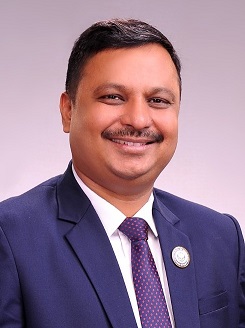Telecom Commission approves Wi-Fi services on flights in India
Indian and foreign airlines would be free to offer data and voice services to passengers but only over Indian airspace.

New Delhi: Air travellers in India will soon get in-flight internet access, with the Telecom Commission, the highest decision-making body at the telecom department, approving the proposal on Tuesday.
“We will now have to create a separate category of licencees called in-flight connectivity provider. These will provide internet as well as voice services within Indian territorial airspace… in both domestic and international flights,” telecom secretary Aruna Sundararajan told reporters.
The telecom department will now start the process of framing licence terms for in-flight connectivity (IFC) providers and then invite applications, she said, adding that this process could take three months. IFC providers will be required to pay an annual licence fee of Re1 initially.
“It is a fabulous decision. Given the nature of my job, I’m constantly travelling and it is my downtime when I take flights, which now I can use more productively. With data availability, I can catch up on work, read online and stay connected,” said Abhishek Ganguly, managing director of Puma India.
Mobile calling service would be permitted above 3,000m in Indian airspace and the service should be through an Indian satellite and or a Department of Space-approved satellite, and the gateway should also be in India. The telecom regulator had recommended in January that the government allow foreign satellites and gateways.

The telecom department will leave the pricing of these services to the market.
“The pricing would depend on the airline, sometimes it is a part of the ticket and sometimes you are charged (rates)… that could start from $5-10. Indian airlines will have to see what passengers will be willing to shell out,” said Neelu Khatri, president of aerospace at Honeywell India. The company offers high-speed in-flight Wi-Fi to airlines globally.
Meanwhile, the CAPA Centre for Aviation believes there may not be a business case for providing such services in domestic flights.
“Airlines will have to create a business case for the investment needed. Rough estimates suggest fitting the equipment to provide such services in an aircraft could cost around $400,000-600,000… airlines will have to see whether the investment is recoverable, what is the cost per minute, etc… initially the cost to the passenger may be on the higher side,” said Kapil Kaul, CEO and director, CAPA South Asia.
The telecom industry, too, does not see much revenues coming from these services. “As far as the revenue opportunity is concerned, there won’t be high volumes; so we don’t see any big bucks coming,” Rajan Mathews, director general, Cellular Operators Association of India, said.
The Telecom Commission on Tuesday also approved Trai’s suggestions on broadband proliferation through public-wifi hotspots. “We have asked TRAI to work out an operational framework for this,” Sundararajan said.
Trai sent recommendations to the telecom department in March 2017, suggesting a framework to set up public data offices (PDOs), similar to public call offices, for providing public Wi-Fi hot spots. These pay-as-you-go PDOs will offer small data packs starting at Rs2.
It is, however, not clear whether the government will allow resale of data purchased by the PDO from telecom or internet service providers. Trai chairman R.S. Sharma has pitched for allowing data resale to boost public Wi-Fi hotspots.
In a relief to consumers, the commission also approved the creation of a three-tier structure headed by a telecom ombudsman for grievance redressal. The existing Trai Act will be amended to give it powers to create an ombudsman.
On whether there would be penal powers, Sundararajan said, “This will have to be worked out by TRAI but it will have to be (an) effective ombudsman.”
Trai had also suggested the creation of a telecom ombudsman to address consumer grievances, with the power to levy penalties on telecom service providers.
Under the proposed structure, a consumer can approach the service provider in case of a grievance and the company will have to address the concerns within a set time-frame. If the complaint is not resolved, the customer can seek further redressal through consumer grievance redressal forums and later, the ombudsman if the forums do not resolve the issue.
“The intention is good but a simpler way should be found instead of this three-tier structure. There would also be a cost of setting up redressal offices across the country. And if the mechanism is online, how many people have access to smartphones in India?” Mathews wondered.
Courtesy / Source link : https://www.livemint.com/Industry/7UaxxjqvKZdULSfSStu8qJ/Telecom-Commission-approves-WiFi-services-on-flights-in-Ind.html

